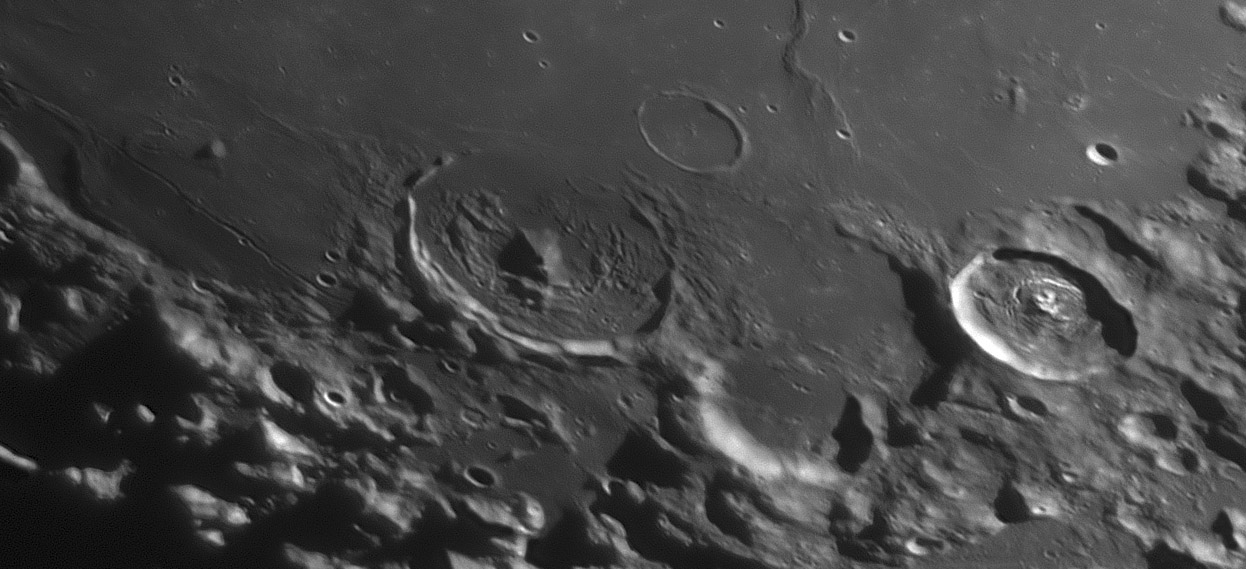September 25, 2024
A Big Cluster
Originally published May 3, 2014

image by Mario Weigand, Offenbach am Main, Germany
The southern shore of Mare Humorum is littered with more large craters than any other place around the mare. From east to west they are bright-rimmed Vitello (with a floor filled with rim slumps cut by concentric rilles), Lee (about the size of Vitello but missing its north rim), the much larger Lee M (between Vitello and Doppelmayer), and Doppelmayer with a massive peak and a wreath of ridges and rilles. Just north is Puiseux, the largest crater entirely surrounded by Humorum lavas. But wait, is there another likely crater along this shore about the same size as Doppelmayer and Lee M? Just to the west (left) of Doppelmayer is another oval area crossed by the Doppelmayer Rille. An arced mare ridge (well shown on Mario's image) curving away from the edge of the maria-highland boundary could be part of the rim of an approximately 80 km wide buried crater. The oddly isolated, 400 m high peak just above the rille seems to be in the wrong place to be a remnant of the rim, which might instead be marked by the mare ridges north of the peak. A question might be, why are there five or six large craters along the southern margin of Humorum? Vitello is younger than the mare, but the others are older, having formed on the sloping basin floor/rim and later been tiled and embayed by the lavas. To have so many large craters (plus Hippalus and Gassendi too) on the edge of the basin floor suggests that a long interval of time elapsed between when the basin formed and when the lavas later filled it.
Chuck Wood
Technical Details
March 12, 2014. C14 XLT + PointGrey Grasshopper GS3-U3-28S4M camera + Baader amplification FFC + Baader G filter.
Related Links
21st Century Atlas chart 23.
Mario's website
Yesterday's LPOD: Quiz Time
Tomorrow's LPOD: PKT Worms
COMMENTS?
Register, Log in, and join in the comments.



